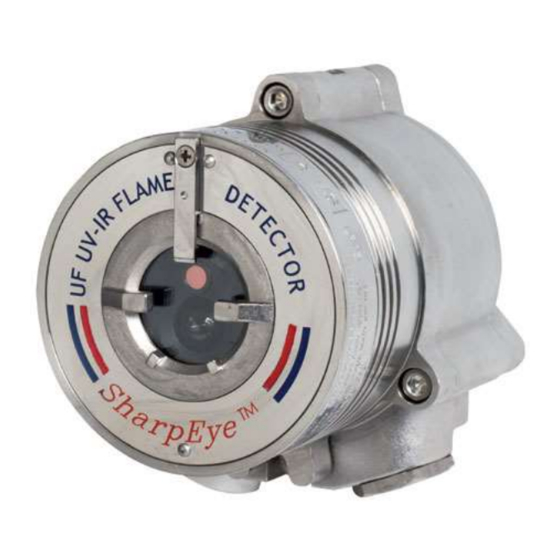
SharpEye 40 Manuals
Manuals and User Guides for SharpEye 40. We have 3 SharpEye 40 manuals available for free PDF download: User Manual
SharpEye 40 User Manual (88 pages)
Triple IR (IR3) Flame Detector
Brand: SharpEye
|
Category: Security Sensors
|
Size: 1 MB
Table of Contents
Advertisement
SharpEye 40 User Manual (84 pages)
Ultra Fast UV/IR Flame Detector
Brand: SharpEye
|
Category: Security Sensors
|
Size: 1 MB
Table of Contents
SharpEye 40 User Manual (78 pages)
Multi IR Hydrocarbon and Hydrogen Flame Detector
Brand: SharpEye
|
Category: Security Sensors
|
Size: 1 MB
Table of Contents
Advertisement
Advertisement


